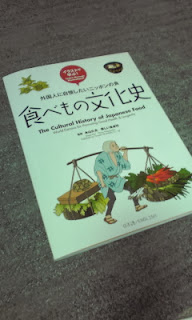Washoku (traditional Japanese cuisine) has been added to
UNESCO’s Intangible Cultural Heritage list amid increasing its popularity
throughout the world. Washoku is the
accumulation of this eating culture over the last 15,000 years, being well-balanced, full of seasonal colors, and
simply cooked to bring out the true flavor of the ingredients. Especially, in Washoku it
is important that the sense of the season be reflected in everyday meals, and
this concept has long been in our food culture.
However, many Japanese especially younger
generations do not pay enough attention to the values these days. As the society has
become more globalized, our dietary habits have also globalized. We have more
westernized food. I am not saying western food is not good. It is fine, but sad for us to lose our food culture.
As its change, our tea culture has been changing. Green
tea goes well with traditional Japanese food like less fat, more fresh veges
with subtle flavor, and white rice. However, the westernized food, which is
usually more fatty, is
good with black tea in order to refresh your mouths. No wonder the green tea
consumption has been decreasing. The more choices, the better. But we should
keep our dietary culture too.
 |
The Cultural History of Japanese Food
English translation by Tomo |







